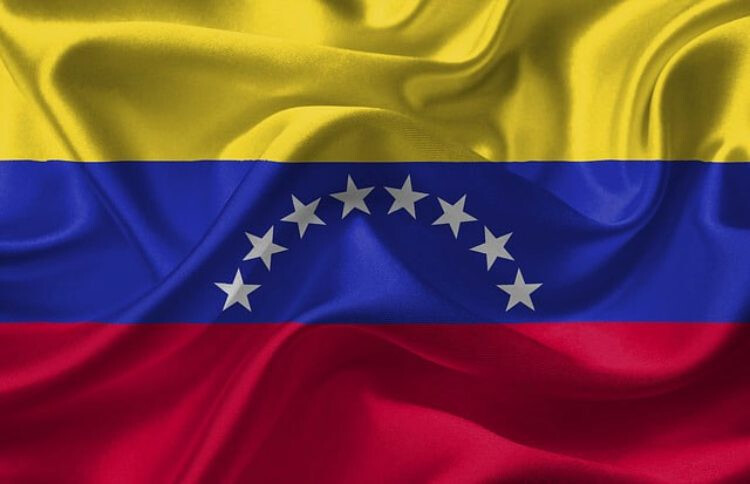
Washington D.C. – In a dramatic move that underscores the United States' unwavering support for Venezuela's democratic opposition, the US government has successfully extracted five prominent anti-government figures who had been holed up in the Argentine Embassy in Caracas for over a year, evading the relentless pursuit of President Nicolás Maduro's authoritarian regime. The announcement, made by US Senator Marco Rubio on Monday, hailed the operation as a precise and successful extraction, confirming the safe arrival of the individuals on American soil.
The five rescued individuals are known to be close allies of María Corina Machado, the widely popular opposition leader who was controversially barred from running in last year's presidential election. Among those spirited away to safety are Pedro Urruchurtu, the international coordinator for Machado's political party, Vente Venezuela, and Magalli Meda, who served as Machado's campaign manager. Their year-long ordeal began in March 2024 when Venezuelan prosecutors issued arrest warrants against them on unsubstantiated charges of plotting to destabilize the government – a common tactic employed by the Maduro regime to silence dissent.
The Argentine Embassy in Caracas had become an unlikely sanctuary for these opposition members, offering diplomatic protection against the Venezuelan authorities. Initially, six individuals sought refuge within its walls. However, the number dwindled to five following the surrender and subsequent parole of opposition advisor Fernando Martínez Mottola in December 2024. Tragically, Mottola passed away in February 2025 due to deteriorating health, highlighting the precarious situation faced by those opposing Maduro.
The responsibility for the safety and well-being of the opposition figures within the embassy shifted hands in the summer of 2024. This transfer occurred after Argentina's staunch refusal to recognize the legitimacy of the July 2024 presidential election in Venezuela, which saw Maduro secure a third term amidst widespread allegations of fraud and irregularities. In response to Argentina's principled stance, the Maduro government expelled Argentine diplomats, leading Brazil, which also did not recognize the election results, to assume the custodial role over the Argentine diplomatic premises. This diplomatic maneuver provided a continued layer of international protection for the embattled opposition members.
Senator Rubio, a vocal critic of the Maduro regime, did not mince words in his statement regarding the rescue operation. He condemned Maduro's "illegitimate regime" for its systematic dismantling of Venezuelan institutions, its egregious human rights abuses, and its destabilizing influence on regional security. Rubio extended his gratitude to all those involved in the intricate operation that led to the "safe liberation of Venezuela's heroes," hinting at a coordinated effort involving various US agencies and potentially other international partners.
The backdrop to this dramatic rescue is the deeply entrenched political and economic crisis that has gripped Venezuela for years. Maduro, the handpicked successor of the late Hugo Chávez and the torchbearer of his socialist "Chavismo" ideology, has presided over a period of severe economic decline, hyperinflation, and widespread shortages of basic necessities. His consolidation of power has been marked by the suppression of dissent, the muzzling of the independent media, and the manipulation of electoral processes.
The 2024 presidential election served as a stark illustration of this democratic backsliding. Despite widespread domestic and international condemnation of the electoral conditions, including the barring of key opposition figures like María Corina Machado, Maduro was declared the winner. The opacity of the vote count and the unwavering support of a pro-government National Electoral Council and judiciary further eroded the credibility of the outcome. The United States, the European Union, and numerous Latin American nations have steadfastly refused to recognize Maduro's claim to legitimacy, calling for transparency and accountability.
The political turmoil in Venezuela has been met with significant social unrest. Nationwide anti-government protests have been met with brutal crackdowns by security forces, resulting in numerous deaths, thousands of arrests, and credible allegations of torture and extrajudicial killings. Opposition sources estimate that hundreds of political prisoners remain in detention, and the climate of fear and intimidation continues to stifle any meaningful political opposition within the country.
María Corina Machado, despite being barred from the presidential ballot, remains a powerful symbol of resistance against the Maduro regime. Her unwavering commitment to democratic principles and her significant popular support have made her a prime target for government persecution. The fact that her close allies were forced to seek refuge in a foreign embassy for over a year underscores the perilous environment for opposition figures in Venezuela.
Following Senator Rubio's announcement, Machado herself took to social media to express her profound gratitude for the successful rescue operation. She lauded it as an "impeccable and legendary operation for the freedom of five heroes" and extended her heartfelt thanks to everyone who played a role in making it possible. Her words reflect the immense relief and hope that this action has likely brought to the beleaguered Venezuelan opposition movement.
The US government's decision to undertake such a risky and complex operation signals a potential shift towards a more assertive approach in its policy towards Venezuela. While diplomatic efforts and sanctions have been the primary tools employed to pressure the Maduro regime, this direct intervention demonstrates a willingness to take more decisive action to protect those facing political persecution. The long-term implications of this rescue operation on US-Venezuela relations and the broader political landscape of the region remain to be seen. However, it undoubtedly sends a strong message to the Maduro regime and offers a glimmer of hope to the Venezuelan people yearning for a return to democracy and the rule of law. The international community will be closely watching the unfolding developments and the potential for further actions aimed at addressing the protracted crisis in Venezuela.
[Copyright (c) Global Economic Times. All Rights Reserved.]



























